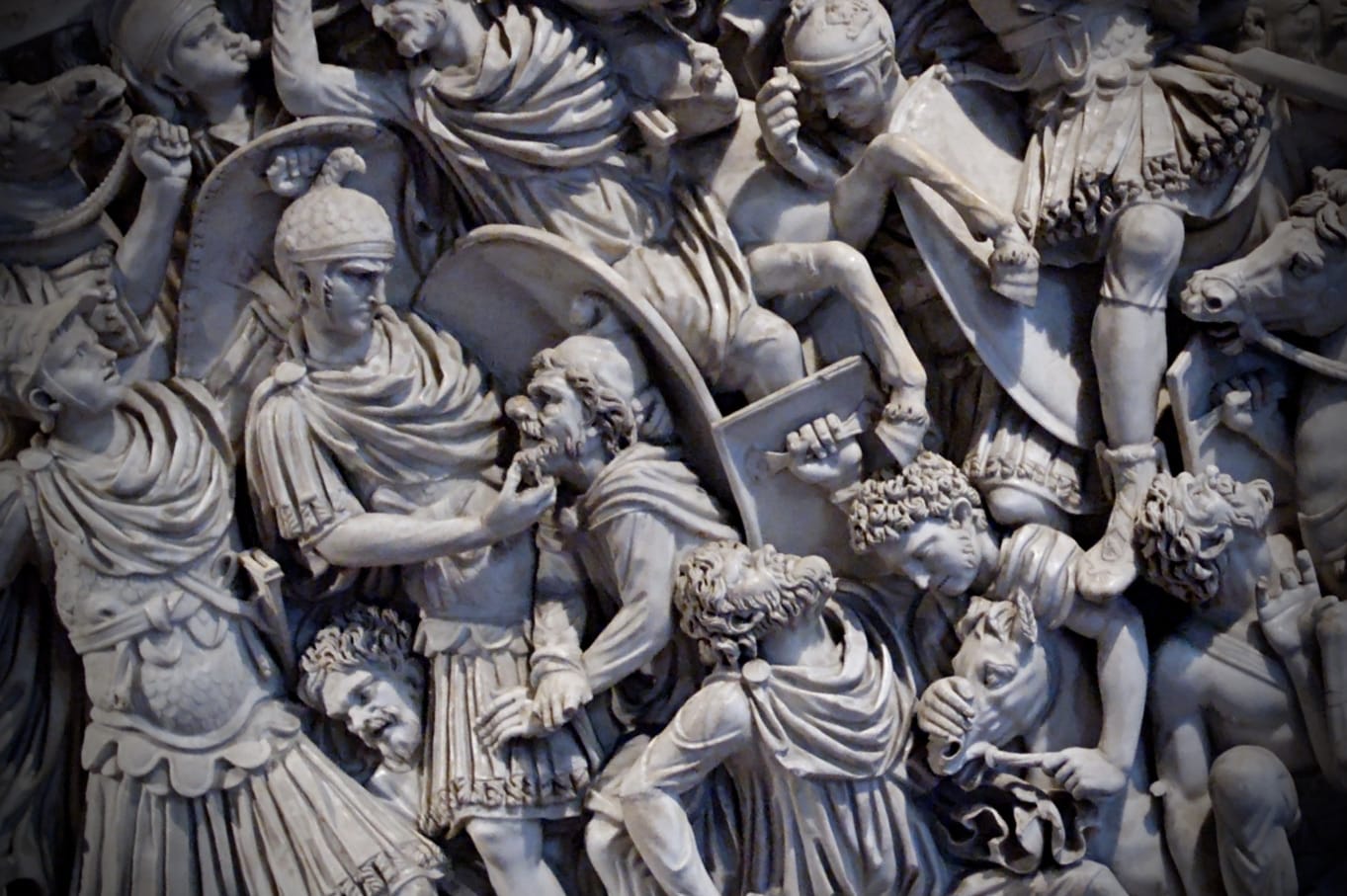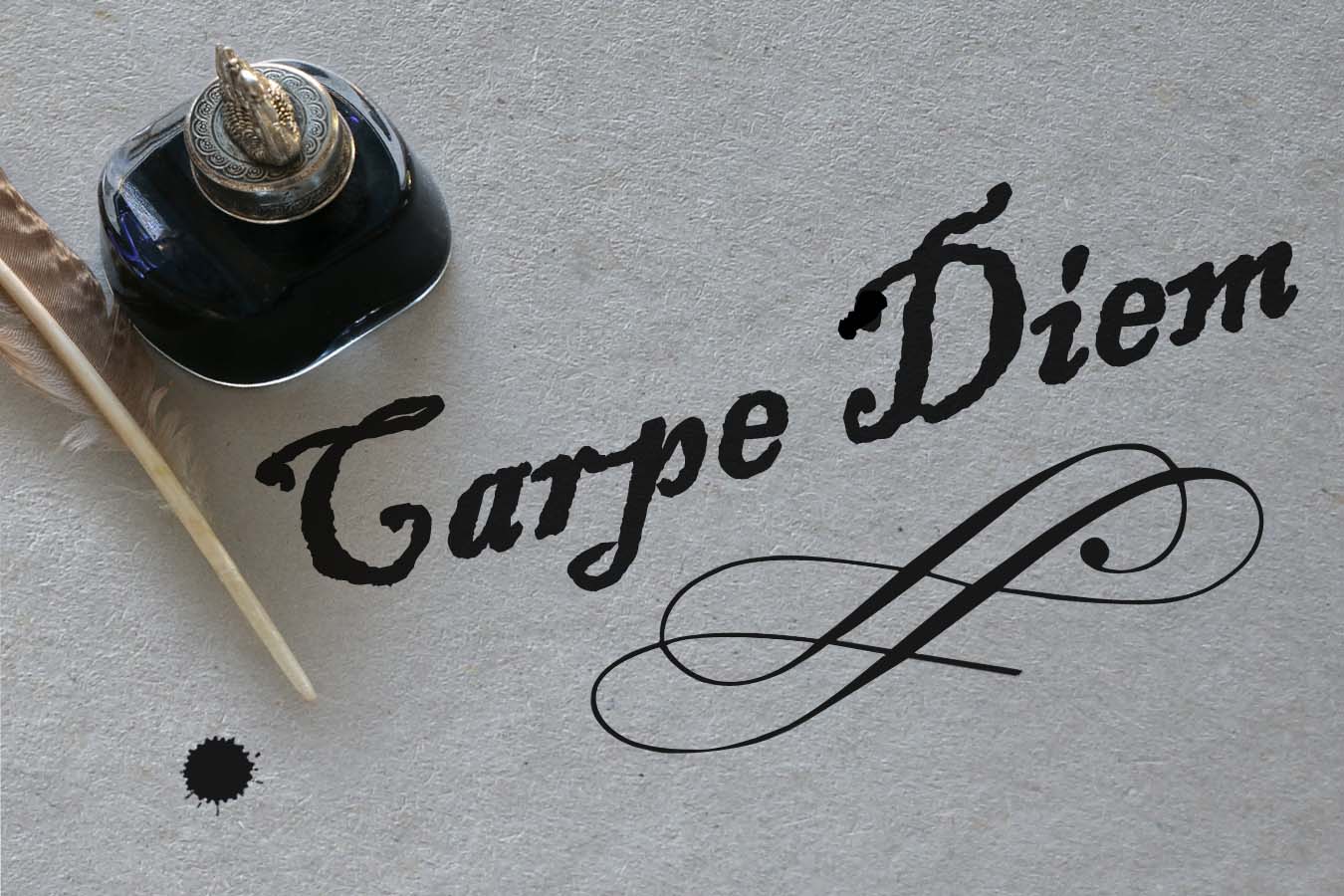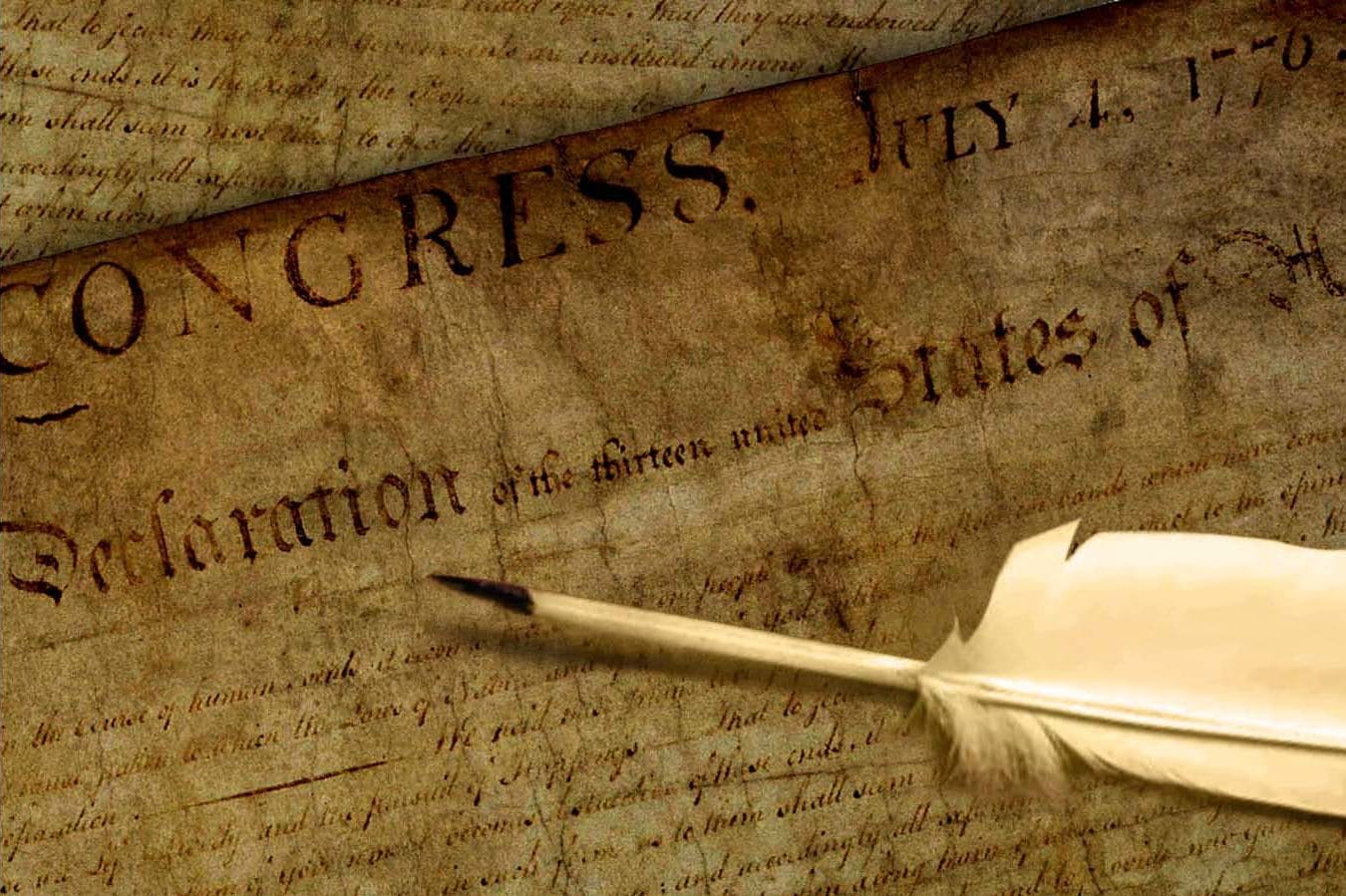 .
.
ometimes that well-worn adage doesn’t really mean what our literal-minded, text-focused, Google-driven world thinks it means. One reason this happens is that, quite simply, language evolves. To further complicate matters, all too often the context of these popular wisdoms has been forgotten.
In the case of “I took the road less traveled by, and that has made all the difference,” the aphorism comes from a poem that is typically misinterpreted.
The closing lines of Robert Frost’s poem The Road Not Taken are ubiquitous in American culture as an anthem of independence. We’ve seen this verse printed on t-shirts, coffee mugs, and refrigerator magnets just to name a few.
These words have been borrowed for everything from high-school commencement speeches to product advertisements, to episode titles of over a dozen television series, and more.[1]
But, The Road Not Taken isn’t actually a paean of bold self-assertion and uniqueness. In fact, it’s quite the opposite. As Frost himself warned audiences, “you have to be careful of that one; it’s a tricky poem – very tricky.”[2] Even the person who inspired the poem didn’t “get it” at first.
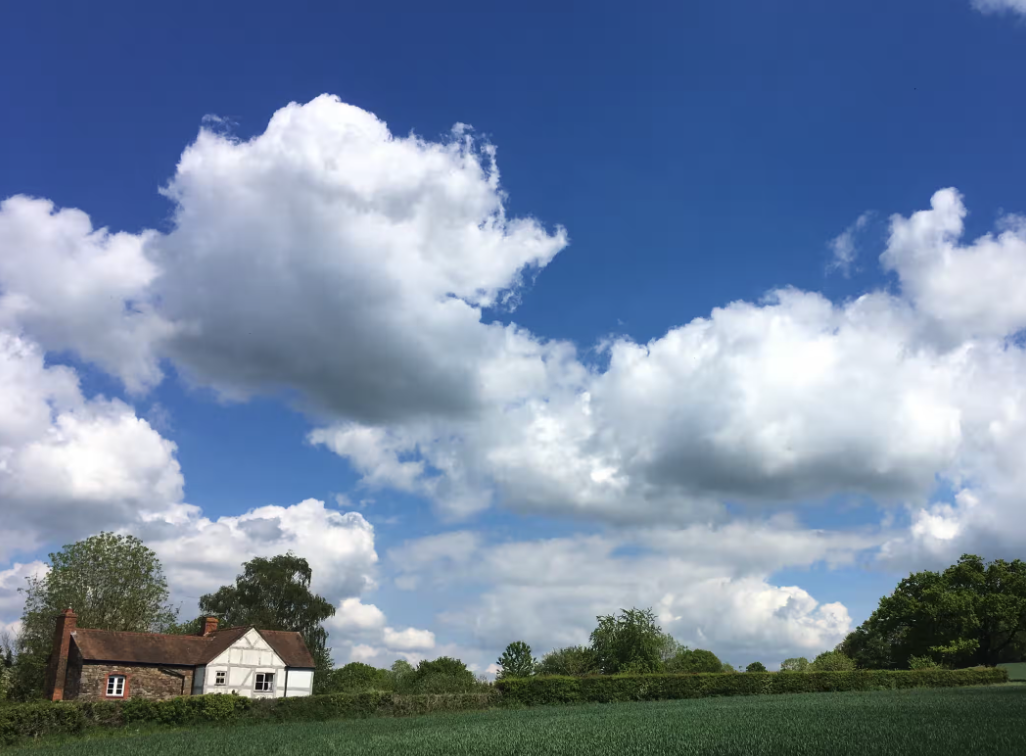
What Inspired The Road Not Taken?
As with prose literature, when engaging poetry the author and their life experience comes into play. Inspiration for The Road Not Taken came from Frost’s mirth over a personality trait of his closest friend in England, Edward Thomas.
While Frost was living in Gloucester, he and Thomas would take long walks through the countryside together. Repeatedly, Thomas would choose a route on the promise of showing his American friend rare wild-flowers or birds’ eggs, only to have the walk end in laments and self-reproach when his chosen path failed to produce any such marvels. Ribbing Thomas after one of their best flower-gathering walks, Frost chided, “No matter which road you take, you’ll always sigh, and wish you’d taken another.”[3]
After Frost returned to the U.S., where he finished The Road Not Taken, he sent a copy to Thomas. Frost’s expectation was that his friend would understand the poem as a joke, and respond with something along the lines of “very funny”… “stop teasing me.” But as noted above, that isn’t what happened.
Instead, Thomas praised the poem, his remarks indicating he missed the joke. Much to Frost’s chagrin, he would have to explain to Thomas that he’d been the butt of a joke. And, not surprisingly, Thomas didn’t find it the least bit funny. Frost’s joke had pricked Thomas’ already wavering confidence.
None too pleased, Thomas declared he doubted anyone would see the poem as a joke unless they had Frost to personally guide them through it. Frost came to realize just how tricky The Road Not Taken is when he read it for a group of college students – who didn’t get it either. Frost ultimately extended a “Mea culpa” to his good friend.[4]
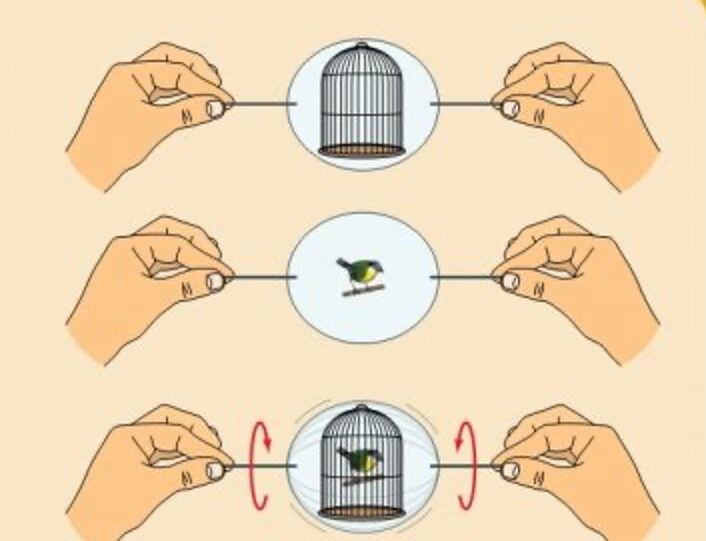
It’s a Tricky Poem… Very Tricky
A careful reading begins with Frost’s title. His poem isn’t called The Road Less Traveled, though it’s often mistaken to be. Rather, it is titled The Road Not Taken. So, the poem is definitely not about the road the narrator chose to walk, less-traveled or otherwise.
When The Road Not Taken is read carefully, it becomes apparent that the poem functions on a fluctuating rhythm, one that reflects indecisiveness. More significantly, it is evident that the narrator isn’t simply telling us about these vacillating perspectives, he’s experiencing these emotions in real time.
But, here’s where Frost’s trickiness can trip up a reader. Given the way Frost structured The Road Not Taken, when read superficially it can act as a verbal thaumatrope – rotating two opposed visions in such a way that they, deceivingly, seem to merge.
Much like the Victorian-era toy in which two objects drawn on opposite sides of a card – a bird and a cage for instance – are, by quick spinning motion, made to appear as a single image of the bird in a cage.[5] In the case of The Road Not Taken, the illusion is that the poem is from a consistent viewpoint rather than fluctuating perspectives.
But if we engage Frost’s work deeply, and take it line-by-line, we can see the shifts in perspective that lead to the more nuanced understanding Frost indicated.

Taking it Line by Line
Two roads diverged in a yellow wood,
And sorry I could not travel both
And be one traveler, long I stood
And looked down one as far as I could
To where it bent in the undergrowth;
Then took the other, as just as fair,
And having perhaps the better claim,
Because it was grassy and wanted wear;
Though as for that the passing there
Had worn them really about the same,
And both that morning equally lay
In leaves no step had trodden black.
Oh, I kept the first for another day!
Yet knowing how way leads on to way,
I doubted if I should ever come back.
I shall be telling this with a sigh
Somewhere ages and ages hence:
Two roads diverged in a wood, and I—
I took the one less traveled by,
And that has made all the difference.[6]
Line 1: Frost introduces his primary symbol, diverging roads in the woods.
Lines 2-3: The speaker expresses regret for the human limitation that restricts his travel to one road, forcing him to choose between them. It’s clear that making a choice isn’t easy for him, since “long I stood” before reaching a decision.
Lines 4-5: He examines one road as well as he can, but information is limited because the road takes a turn into an area covered by low-lying vegetation.
Lines 6-8: At first blush, these lines seem to suggest the speaker finds the second path a more attractive choice because it appears no one had traversed it recently.
Lines 9-12: Here’s a tricky bit. The speaker backpedals, pointing out that this road is no more or less worn that the first one, that they both “equally lay in leaves no step had trodden black.”
Lines 13-15: Another slippery passage – the speaker tells himself he’ll take a walk on the first road another day. Given the exclamation point at the end of this line, he’s clearly excited about having solved his dilemma. But, “knowing how way leads to way,” he immediately reverses himself, doubting if “I should ever come back.”
Lines 16-20: The tone clearly shifts here. The speaker is no longer in the moment. Rather, he imagines himself in the future, near the end of his days, talking about the life he’s lived. In perhaps the most subtle nugget of all, the speaker will be telling his audience that “Two roads diverged in a wood, and I—I took the one less traveled by, and that has made all the difference.”
The “I—I” ever-so-deftly suggests a pause before the speaker recounts the story, as if he’s taking a beat to remember/decide how to characterize his choice.[7]

Psychologically Speaking
The Latin origin of the verb “to decide” means to cut off (de=off, caedere=cut). The act of deciding is supposed to cut off the deliberation process after a choice has been made. But psychologically, that isn’t the way it works. Instead, the deliberation process actually binds the options together in our memory, and the unchosen option lingers in our minds.
This psychological development leads to an inverse inference of value. What this means is… after we realize the consequences of our decision, the perceived value of the unchosen option is inversely related to that outcome. And the stronger our memory is of deliberating between options, the greater the disparity between the value attributed to the chosen and unchosen options.
For example, if Frost’s speaker ended up having a lovely walk on the road he ultimately chose, he’ll remember the other road as having been inferior in some way even if it wasn’t.[8] This is, of course, precisely what occurs in the closing lines of The Road Not Taken.
Remember, he told us both roads were equally fair and equally traveled. And don’t forget the speaker’s pause, as he mines his memory before recounting his story in the future. Plus, we end where we began our examination of The Road Not Taken, by noting that Frost’s title refers to the road his speaker didn’t choose.
So, rather than being an anthem of independence, Frost’s The Road Not Taken is an ode to the decision-making process, and how that activity effects memory.

#aphorisms unplugged #the art of reading
Endnotes:
[1] Orr, David. “The Most Misread Poem in America.” September 11, 2015. The Paris Review.
[2] Thompson, Lawrance. Selected Letters of Robert Frost. New York: Holt, Rinehart and Winston, 1952. Pg xv. https://ia801500.us.archive.org/15/items/in.ernet.dli.2015.111084/2015.111084.Selected-Letters-Of-Robert-Frost_text.pdf
[3] Thompson, Lawrance. Robert Frost: A biography. New York: Holt, Rinehart and Winston, 1981. Pg 234.
Thompson, Lawrance. Selected Letters of Robert Frost. New York: Holt, Rinehart and Winston, 1952. Pg xiv. https://ia801500.us.archive.org/15/items/in.ernet.dli.2015.111084/2015.111084.Selected-Letters-Of-Robert-Frost_text.pdf
Hollis, Matthew. “Edward Thomas, Robert Frost and the road to war.” July 26, 2011. The Guardian. https://www.theguardian.com/books/2011/jul/29/robert-frost-edward-thomas-poetry
[4] Hollis, Matthew. “Edward Thomas, Robert Frost and the road to war.” July 26, 2011. The Guardian. https://www.theguardian.com/books/2011/jul/29/robert-frost-edward-thomas-poetry
[5] Orr, David. “You’re Probably Misreading Robert Frost’s Most Famous Poem.” August 18, 2016. Literary Hub. https://lithub.com/youre-probably-misreading-robert-frosts-most-famous-poem/#:~:text=Because%20the%20poem%20isn’t,the%20road%20he%20never%20tried.
[6] Frost, Robert. “The Road Not Taken.” The Atlantic Magazine. August 1915, Pg. 223.
[7] “The Road Not Taken.” Encyclopedia.com https://www.encyclopedia.com/arts/educational-magazines/road-not-taken
[8] Natalie Biderman, and Daphna Shohamy. “Memory and decision making interact to shape the value of unchosen options.” Nature Communications. 12, 4648 (2021). https://doi.org/10.1038/s41467-021-24907-x
.
Images:
The Road Not Taken. iStock.com/credit: Alex
What Inspired The Road Not Taken? Boulter, Liz. “Roads taken: the Gloucrstershire footpaths that were the making of Robert Frost.” The Guardian. June, 2021. https://www.theguardian.com/travel/2021/jun/14/walking-gloucestershire-footpaths-making-of-robert-frost-and-revolutionary-poets
It’a a Tricky Poem… Very Tricky https://teacherswebresources.com/2016/03/28/victorian-thaumatrope/
Taking it Line by Line Photo by Johnny Briggs on Unsplash
Psychologically Speaking Photo by Yeshi Kangrang on Unsplash
 S
S![]() I have ever endeavoured to nourish the mercifull disposition, and humane inclination I borrowed from my Parents, and regulate it to the written and prescribed Lawes of Charity.[6]
I have ever endeavoured to nourish the mercifull disposition, and humane inclination I borrowed from my Parents, and regulate it to the written and prescribed Lawes of Charity.[6]
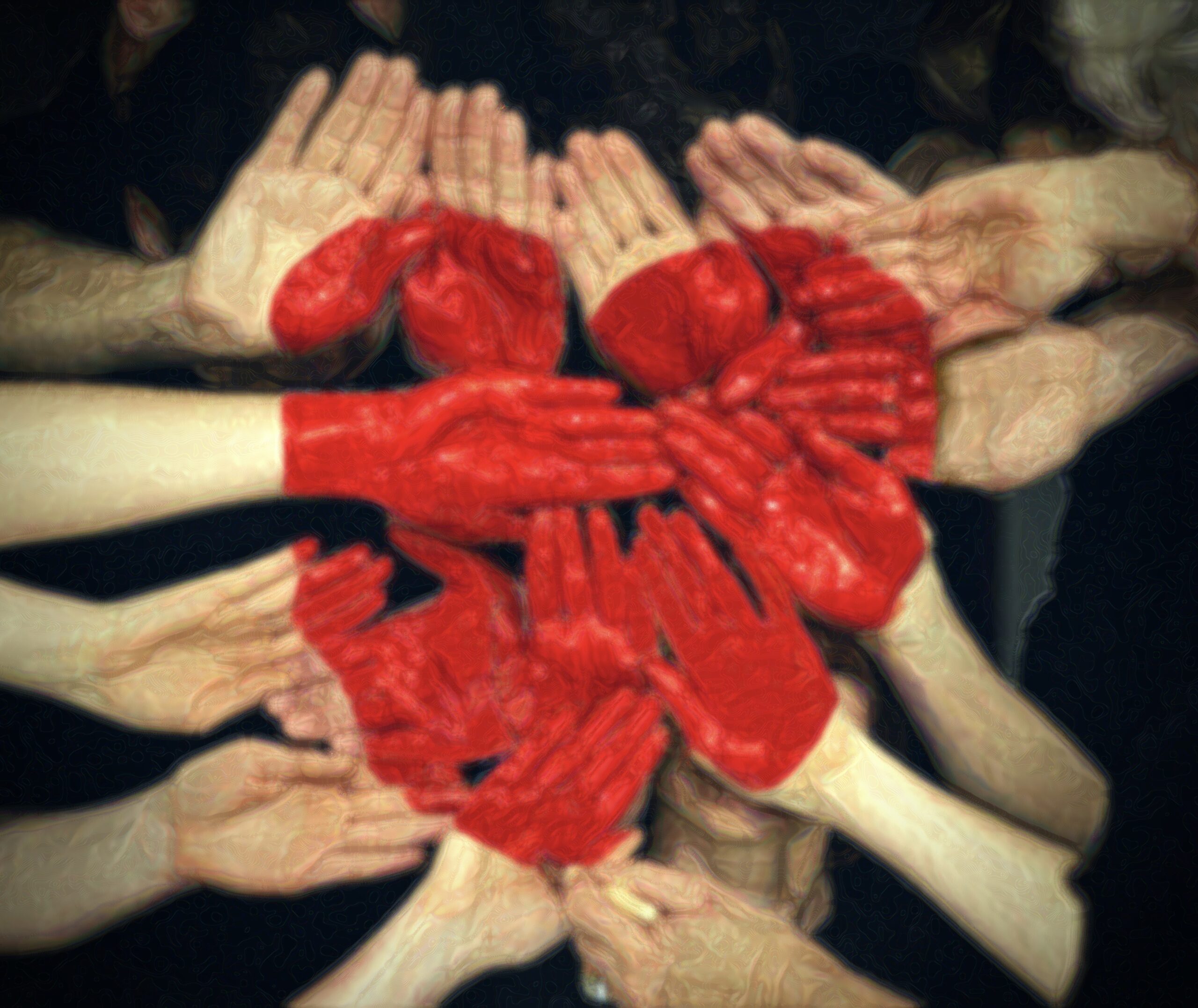
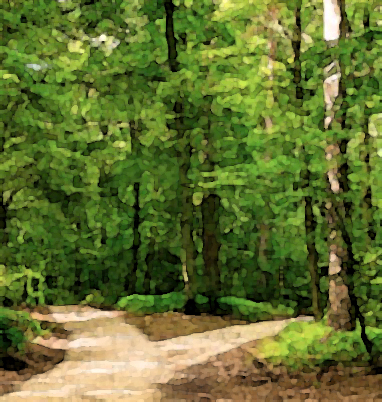





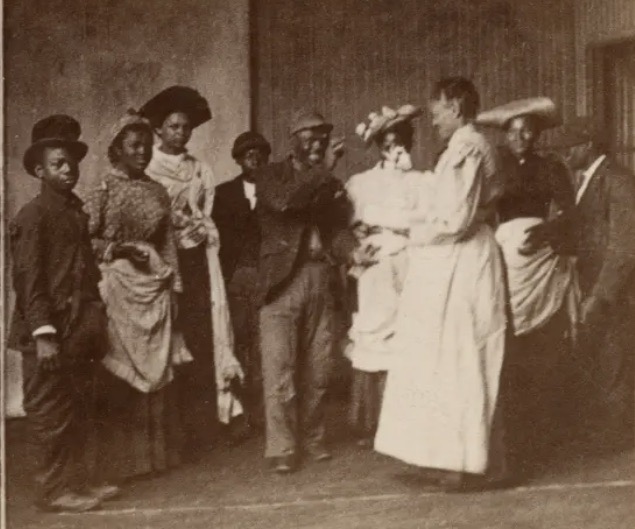
 ll too often the context of popular expressions has been forgotten. Their original message is typically richer and more profound than our contemporary interpretation.
ll too often the context of popular expressions has been forgotten. Their original message is typically richer and more profound than our contemporary interpretation.

 ometimes that well-worn adage doesn’t really mean what our literal-minded, text-focused, Google-driven world thinks it means. One reason this happens is that, quite simply, language evolves.
ometimes that well-worn adage doesn’t really mean what our literal-minded, text-focused, Google-driven world thinks it means. One reason this happens is that, quite simply, language evolves.
